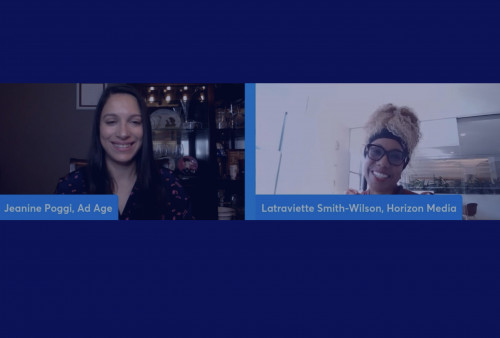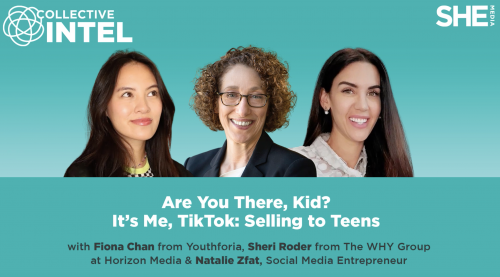For Smith-Wilson, doing DEI differently means totally rethinking where it sits and how it functions.
The New Middle Age with SVP Maxine Gurevich
Horizon’s WHY Group SVP Cultural Intelligence Maxine Gurevich recently joined Scripps News to discuss findings from the recent New Middle Age report.
Below is an excerpt from the live chat. Click here to watch the full segment.
What’s redefining middle age today
MG: We found that middle age as a definition is going through a renaissance now and a lot of different factors are involved in that: historical milestones like first and home buying and parenthood postponing a lot of these into older age, and also medical advancements and life extensions are reframing the definition of what even is middle age.
So when we asked respondents what they felt was middle age, younger people tended to tell us that they felt middle-aged and older people, even beyond 60, told us that they felt middle-aged, because not everyone is in the same path anymore the way that the American system used to be. That’s really changing the way that people are defining themselves in this notion of middle age.
How perceptions are shifting
MG: The way in middle age is depicted in media, you’re seeing a lot of narratives in TV shows and movies that are embracing of rebirth during midlife. Midlife is not a crisis to be challenge with any more, it is embracing it — and also being honest about what’s difficult about it. Whereas historically, you have very clear definitions of when your middle age you are likely in a suit to or a pantsuit, or for women, it’s a skirt — it’s very defined, and you’re not allowed to have fun, you’re not allowed to embrace joy. Those images are are really changing.
Middle age and preventative health
MG: We’re actually taking more preventative measures and our research also showed that this is really an opportunity for marketers to understand that when people start to think they are middle age, there is a spending shift.
People start think that their bodies differently, they start to think of their minds differently, and so they’re often taking preventive measures to prevent old-aging. So it’s also just something for marketers really be thinking about — it doesn’t mean that you have to be targeting a 50-year-old, it might mean that you’re talking talking to a 29-year-old who wants to take preventative measures and and and is considering themselves to be in middle age.




